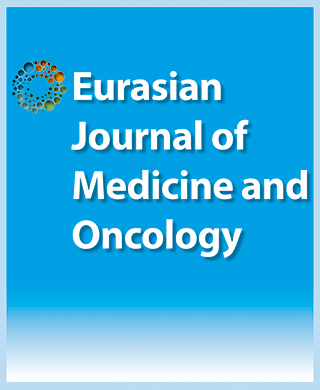

Evaluation of the Attitude of Anesthetists About Anaphylaxis in Turkey
Sengul Ozmert1, Emine Dibek Misirlioglu2, Feyza Sever1, Galip Ozmert3, Fatih Misirlioglu4, Can Naci Kocabas51Department of Anesthesiology, University of Health Sciences, Ankara Child Health and Diseases Hematology Oncology Training and Research Hospital, Ankara, Turkey, 2Department of Pediatric Allergy and Immunology, University of Health Sciences, Ankara Child Health and Diseases Hematology Oncology Training and Research Hospital, Ankara, Turkey, 3Department of Anesthesiology, University of Health Sciences, Ankara Etlik Zubeyde Hanim Maternity and Gynecology Training and Research Hospital, Ankara, Turkey, 4Department of Anesthesiology, University of Health Sciences, Dr. Sami Ulus Obstetrics and Pediatrics Training and Research Hospital, Ankara, Turkey, 5Division of Pediatric Allergy and Immunology, Department of Childrenís Health and Diseases, Mugla Sitki Kocman University Faculty of Medicine, Mugla, Turkey,
Objectives: Anaphylactic reactions are important health problems encountered by anesthesiologists during anesthesia administration. The aim of the study was to determine the attitude of anesthesiologists regarding the management of anaphylactic reactions. Methods: Anesthesiologists across the country were administered a questionnaire consisting of 24 questions that evaluated their attitude regarding anesthesia management in anaphylactic reactions. Results: A total of 223 (70.4% female) anesthesiologists were included in our study. Participantsí level of knowledge for recognizing the signs of anaphylaxis was sufficient. Furthermore, 89.7% of the participants knew that anaphylaxis could occur without skin symptoms. The rate of using adrenalin for anaphylaxis treatment was 74.8%, and the proportion of participants who knew the dose correctly was 65%. The adrenalin administration route was stated as intravenous by 52.5% and intramuscular by 13.1% of the participants. The rate of preoperative questioning of the patientís history of a drug and food allergy was 91.5% and 81.2%, respectively. The answers revealed that 61% of the participants were worried when administering anesthesia to a patient with history of drug allergy. Conclusion: Although the knowledge of anesthetists regarding anaphylaxis is generally sufficient, its importance emphasized during specialized training should be continuously updated.
Cite This Article
Ozmert S, Dibek Misirlioglu E, Sever F, Ozmert G, Misirlioglu F, Kocabas C. Evaluation of the Attitude of Anesthetists About Anaphylaxis in Turkey. EJMO. 2018; 2(3): 146-151
Corresponding Author: Sengul Ozmert



